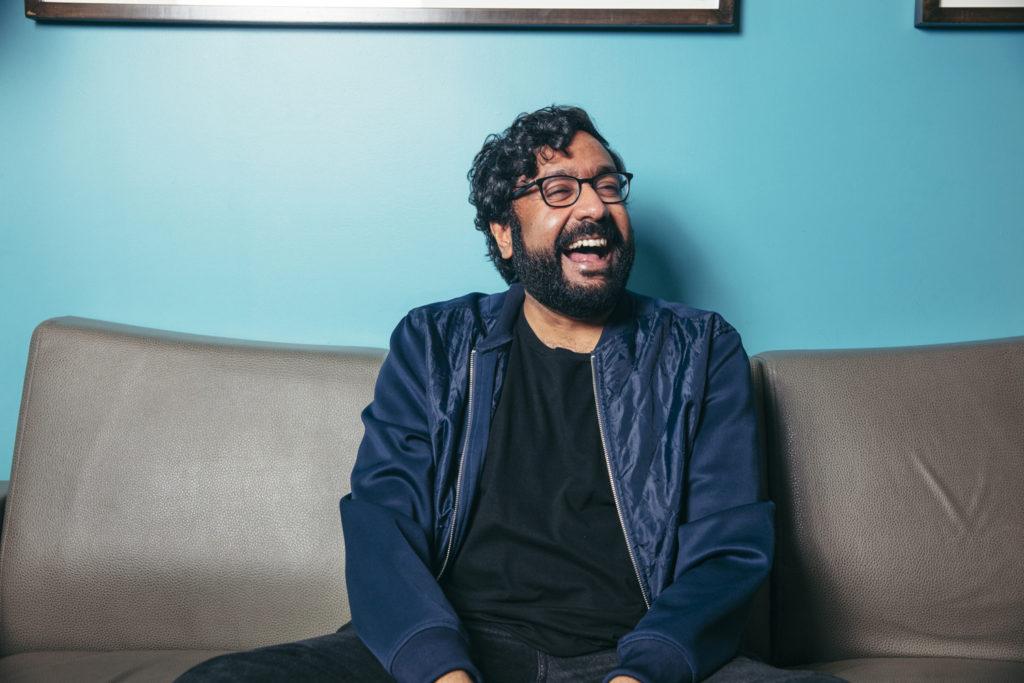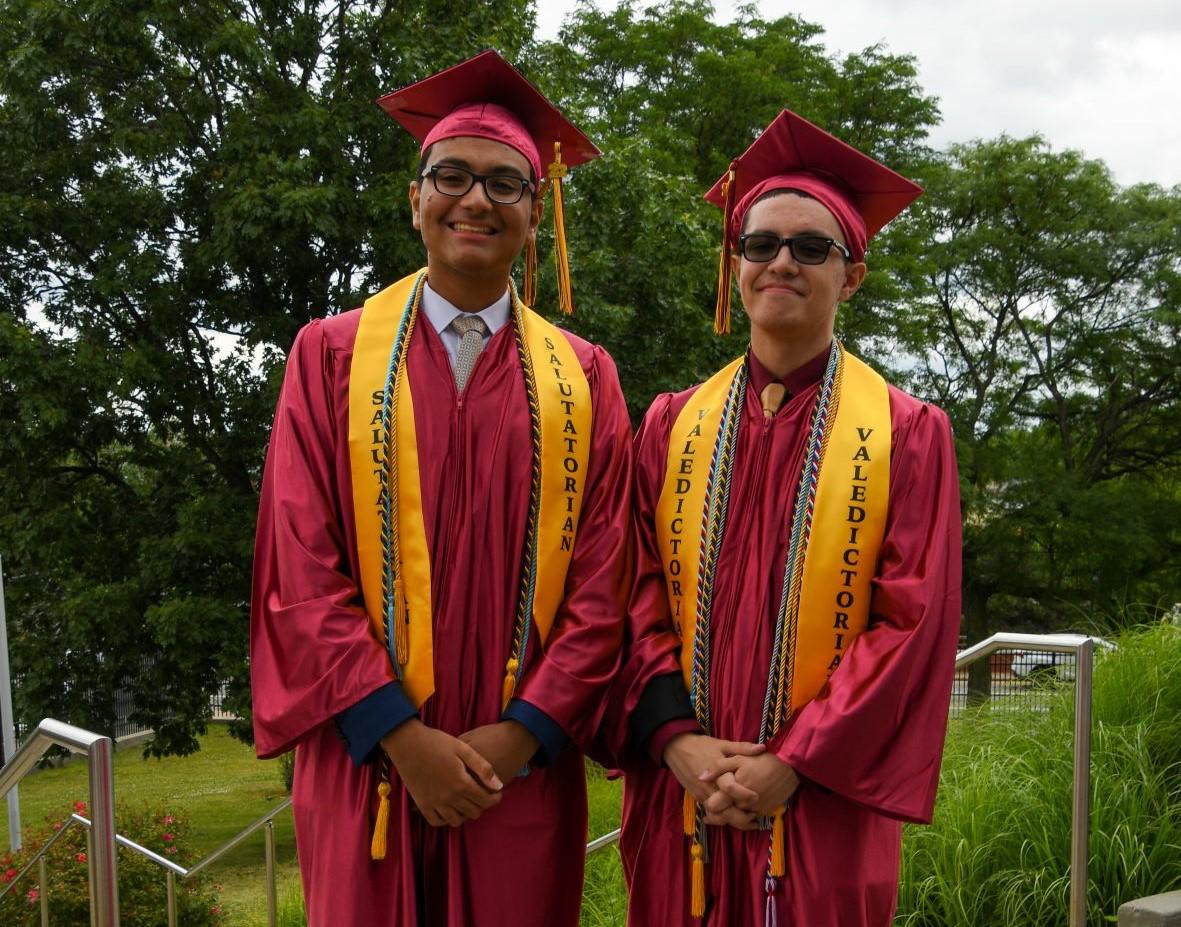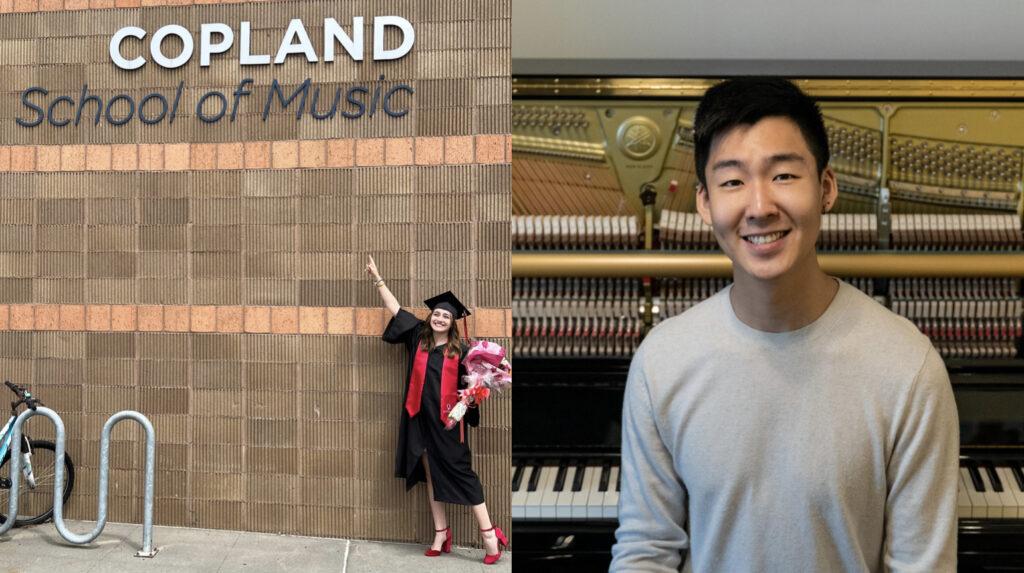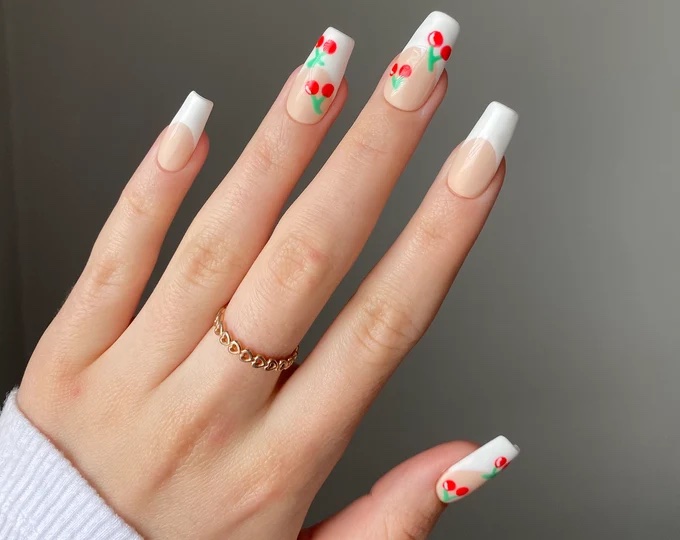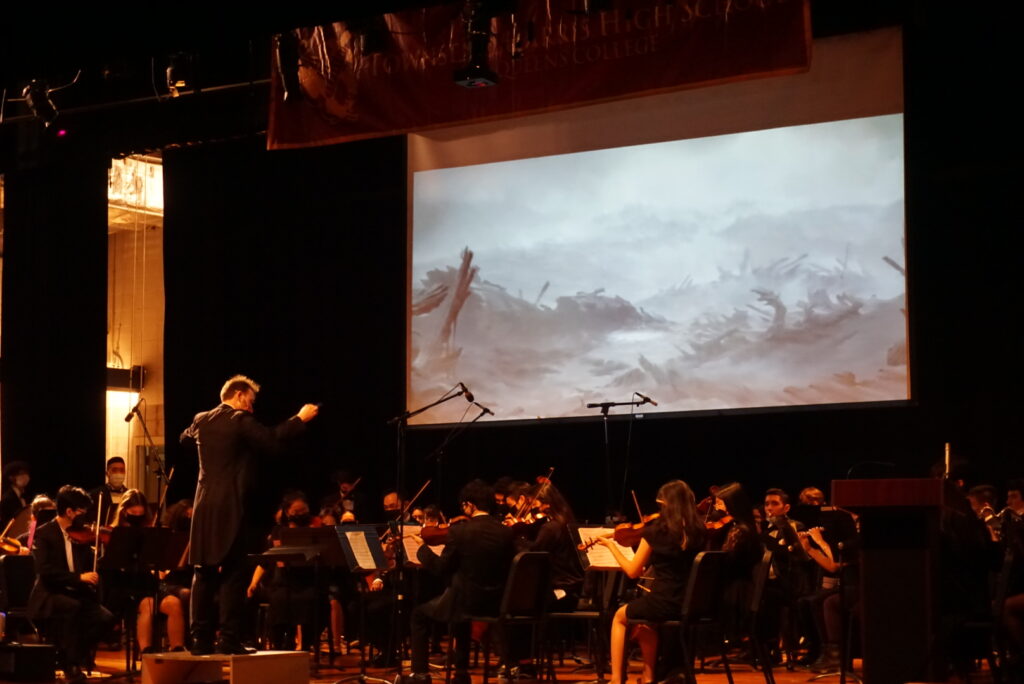
By Carly Hu and Amrin Rahman, Features Editors
“Having life experience made me a better artist. Having an education that was rich made me a better artist. So I think at some point, you do have to take the risk and say I’m pursuing this, but that doesn’t need to be from day one. You can work towards that, just never let it go.”
Only 5 years after The Classic’s first interview with Class of 2000 alum and comedian Hari Kondabolu, Hari has become a worldwide sensation.
In 2017, Hari released The Problem With Apu, a documentary in which he examined the stereotyped Indian cartoon character Apu from The Simpsons. Since the film’s success, Hari has starred on Conan with Conan O’Brien, The View, and The Daily Show with Trevor Noah. In May of 2018, he released his Netflix stand-up comedy special, Warn Your Relatives. Before this successful career, however, Hari was a young Harrisite.
Hari reflected on his time at THHS fondly. “I think that Townsend Harris taught me how to think critically,” he said. “At a relatively young age, it taught me how to write.”
In terms of his favorite teachers during his years at THHS, Hari explained that Mr. Hackney truly fostered his interest in comedy. “Everybody was just obsessed about college, extracurriculars, to get [into] college… Everybody had their heads down… there wasn’t [a lot] of school spirit. With [Mr. Hackney], he always thought outside the box, and kind of nurtured the creativity in a way that I felt made me really lucky.”
Mr. Hackney stays updated with Hari’s comedy, and is proud of his recent success. “For everybody who wants to be a musician, 99% of them essentially don’t succeed, and the same sort of thing is with being a stand-up comedian. So I was like, ‘Okay, he’ll do this… he’ll have fun, but he’ll end up doing something else for a living.’ I didn’t think he would actually be able to pull it off to the extent that he has,” he said.
After graduating in 2000, Hari attended both Bowdoin College and Wesleyan University, and soon realized the stark differences from attending a school in Queens. “Diversity is seen as a commodity… there’s value in learning about many different cultures. We grew up with that… it was just everyday life. It was just walking around Queens,” he explained. “When college happened, all that everyone’s talking about [is] how we have a ‘diverse student body,’ and then you get to these schools and you’re like, ‘This isn’t like home; this isn’t what diversity means.’”
“I think right now we live in a time where there’s so much close-mindedness and people are afraid of losing the country, and I think to myself, ‘Well, what country do you think you’re losing?’ Because the country I grew up in is the one that this country’s becoming… America is becoming Queens, and I don’t see anything wrong with that.”
As for many other comedians, Hari’s career in comedy had initially only been a hobby. He practiced comedy in high school, in college, and even as an immigrant rights organizer in Seattle, simply because of his passion for it. “Just because you’re not pursuing it as a career initially doesn’t mean you shouldn’t do it,” he said.
“I knew I was going to find a way, and then it turned into a career. And then at a certain point, when you’re at that crossroad of deciding, ‘what do I do? This is something that’s becoming more serious,’ … then that’s when you [have] to make the hard decision, but I don’t think you need to make the thing that gives you creative fulfillment…smaller and smaller until it disappears.”
He encourages current THHS students to take risks and follow their interests, above all. “It is okay to be passionate about things, it’s okay to take risks. I know how important college is and academics are, but ultimately, education isn’t just about getting a great job.”
Hari also emphasized the importance of open-mindedness when pursuing interests. “I do think that you could be interested in math and science, and at the same time, critically thinking and being creative—that’s not just a humanities thing…innovation comes from critical thinking. Innovation comes from being creative and thinking outside the box,” he explained.
One aspect of Hari’s stand-up that he is known for is his use of political satire. For him, commenting on politics is merely “observational,” and potential material is “easy to spot…[For example], unequal power dynamics? I gotta say something… There’s something funny in the absurdity of this.” He clarified that politics are not necessarily about elections; they can be personal, day-to-day events, which are what he focuses on with his satire.
Although there is an increasing representation of people of color in comedy, Hari has faced problems in the past regarding the stereotyping of South Asian communities in the media. He described the lack of many South Asian characters he saw in the entertainment industry growing up, as “[he] really just had Apu and some other stereotypical characters.”
“Can you imagine not having Aziz Ansari or Mindy Kaling or any other brown actor? It was just a cartoon. So compared to then, this is a really special time, and I’m really proud to be part of this… first wave of young South Asian comedians making art in the mainstream,” he said.
Hari shared his own advice on combating stereotypes on a day-to-day basis. “I think you gotta call it out… I know people will say ‘It was just a joke, move on,’ but if you don’t find that joke funny, and if you don’t have a chance to reply, you gotta call it out.”
Despite Hari’s many accomplishments, he has never lost sight of the value of his work and is currently developing his own TV show, his next hour of stand-up comedy, and new podcasts. He explained, “I don’t do this in terms of ‘oh, look how much more famous I got.’ I look at [it] in terms of how good the stuff I’m putting out is. Is it better than the last hour that I wrote?… That’s how I look at things.”
“If I was producing stuff I wasn’t proud of, what was the point of any of this?… I don’t do this because of money or because I want to be famous. I do this because I love doing it,” he said.
Photo courtesy of Rob Holysz.


























